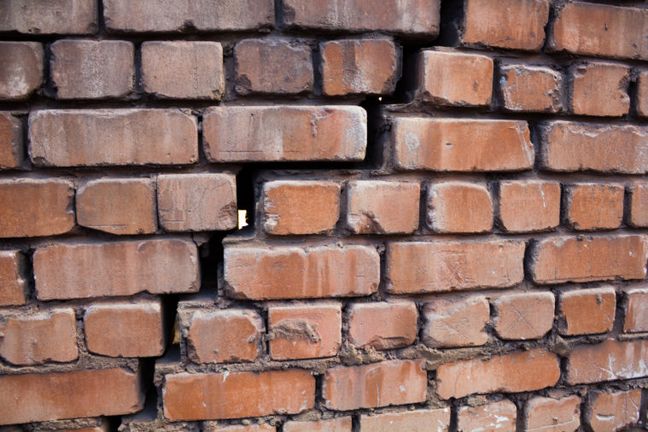For decades across the country, parking enforcement officers have driven past unmetered parking, such as two-hour parking zones, and chalked car tires. If the parking enforcement officer came back, in this instance, over two hours later, and any cars with chalked tires remained, the officer would issue parking tickets. Cities generate a substantial amount of revenue from this practice.
In the first case of its kind, one court recently ruled that this practice constitutes an “unreasonable search” prohibited by the Fourth Amendment to the United States Constitution. The Fourth Amendment reads:
The right of the people to be secure in their persons, houses, papers, and effects, against unreasonable searches and seizures, shall not be violated, and no Warrants shall issue, but upon probable cause, supported by Oath or affirmation, and particularly describing the place to be searched, and the persons or things to be seized.
A law enforcement officer must have “probable cause” in order to conduct a search. Essentially, a law enforcement officer must have reasonable grounds to suspect unlawful activity is taking place before a warrant can be issued to conduct a search. A “search,” as discussed in the United States Supreme Court case of United States v. Jones, 565 U.S. 400 (2012), is a physical trespass for purposes of gaining information. Jones held that putting a GPS tracking device on a car constituted a search.
With respect to chalking tires, two questions are raised: First, does the practice of chalking tires constitute a trespass made to gain information, similar to the installation of a GPS device? Second, if a car is legally parked in a two-hour zone when it is chalked, what is the parking enforcement officer’s reasonable basis for suspecting unlawful activity?
Earlier this year, in the case of Taylor v. City of Saginaw, No. 17-2126 (6th Cir. 2019), the United States Court of Appeals for the Sixth Circuit addressed these questions. The court determined that intentionally making contact with a person’s car to mark a tire was a trespass, albeit a slight one, but one done to gain information regarding how long the vehicle was parked. This falls squarely within the definition of search.
The court then asked whether there was a reasonable basis for the search. While there is an “automobile exception,” which allows an officer to search a vehicle without a warrant if he or she has probable cause (for example, searching a car after a drug detection dog reacts), there is no probable cause here, since the car tire is marked when it is legally parked. In other words, there is no reasonable ground to suspect unlawful activity when the search occurs.
Takeaway
This court’s ruling is binding in Michigan, Ohio, Kentucky and Tennessee. However, it is expected to have nationwide implications, including in the state of California. Challenges to the practice of chalking tires are expected to be brought across the country.

 Author: Brian Woolfall
Author: Brian Woolfall
 Cannabis Workers Allege Quota to Trim 4 Pounds a Day Violates the California Labor Code
Cannabis Workers Allege Quota to Trim 4 Pounds a Day Violates the California Labor Code
 The Ninth Circuit Reminds Us: Every Word Matters
The Ninth Circuit Reminds Us: Every Word Matters
 NO WAY, PRO SE! The Consequences of Abusing the Judicial System as a Pro Se Litigant in Colorado
NO WAY, PRO SE! The Consequences of Abusing the Judicial System as a Pro Se Litigant in Colorado
 Victim of Financial Mismanagement or Unlawful Retaliation? New Jersey City University Program Founder Claims School Retaliated After Reporting Alleged Sexual Harassment
Victim of Financial Mismanagement or Unlawful Retaliation? New Jersey City University Program Founder Claims School Retaliated After Reporting Alleged Sexual Harassment
 “Real Housewives” Gets a Reality Check
“Real Housewives” Gets a Reality Check
 Missing a Chapter: Insufficiency of Expert Deposition Testimony in Medical Malpractice Litigation
Missing a Chapter: Insufficiency of Expert Deposition Testimony in Medical Malpractice Litigation
 Crash Course: Why Summary Judgment Misses the Mark in Illinois Multi-Cause Limousine Crash Collision
Crash Course: Why Summary Judgment Misses the Mark in Illinois Multi-Cause Limousine Crash Collision
 Bitter Truths: Lead, Cadmium, and Defective Pleadings in California Chocolate Class Action
Bitter Truths: Lead, Cadmium, and Defective Pleadings in California Chocolate Class Action
 The Law of Unintended Consequences: Including Insurance Brokers in Litigation Strategy Communication May Waive the Attorney-Client Privilege
The Law of Unintended Consequences: Including Insurance Brokers in Litigation Strategy Communication May Waive the Attorney-Client Privilege
 Construction Defect Debate: Does a Latent Defect Ever Become Patent?
Construction Defect Debate: Does a Latent Defect Ever Become Patent?
 California Employees Cannot Recover Back Pay Under the California Private Attorneys General Act
California Employees Cannot Recover Back Pay Under the California Private Attorneys General Act